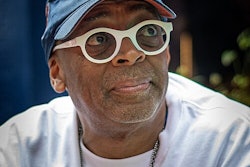SEATTLE — Gov. Chris Gregoire’s goal of not raising college tuition over the next two years is not sitting well with the leaders of Washington’s universities, who say the proposal fails to recognize the budget problems they face.
A decade ago, state dollars paid about 70 percent of the cost to educate an undergraduate student and tuition covered most of the rest. Those numbers have now flipped.
Most of that change has happened during the past four years, as the Legislature put double-digit tuition increases into the state budget to help make up for decreases in state dollars going to Washington colleges and universities.
By encouraging no tuition increases in her proposed budget for the next biennium while not finding other money for higher education, Gregoire is leaving universities to solve their own financial problems, University of Washington President Michael Young and his colleagues from the state’s four year colleges and universities said.
Young said state government can’t reverse the damage it’s done to Washington’s six, four-year schools just by stopping the cuts that took away half their state money and replaced most of it with higher tuition.
The universities say they have swallowed the rest of the state budget cuts by not filling job openings, putting off maintenance, increasing class sizes, hiring fewer teaching assistants, closing or consolidating programs and not offering competitive salaries to their faculty.
At the same time, Young said UW has used some of the tuition increases to offer more classes and eliminate bottlenecks that make it harder to earn a bachelor’s degree in about four years.
“It’s hard to imagine how we could really maintain the excellence of the university on an absolutely flat budget.” Young said.
Even if the Legislature doesn’t require state universities to raise their tuition over the next two years, they are likely to do so anyway to balance their budgets. The Legislature gave the state’s four-year school tuition setting authority in 2011, with the understanding that a percentage of those increases must go to financial aid.
Students are pessimistic about the prospects for a tuition freeze, said Angie Weiss, the University of Washington student government lobbyist. “On campus, seniors are paying double what they paid when they were freshmen,” said the UW senior from Seattle who is majoring in political science and history.
Most students just expect more of the same, Weiss added.
In-state tuition plus mandatory fees total $12,385 for UW undergraduates this year, and $11,735 at Washington State University undergrads. In the 08-09 school year, UW undergraduate tuition plus fees was $6,802. At WSU, it was $6,218 plus a student activity fee.
Student activists from across the state have some new ideas they’re presenting to lawmakers. Weiss said those proposed new sources for higher education dollars including redirecting money from a capital gains tax or a tax exemption on research and development are getting noticed.
University administrators also seem to be taking a proactive approach this year, rather than just begging for the cuts to stop.
“We need to move back to more investment by the state and less investment by the students and their families,” said Sherry Burkey, associate vice president for university relations at Western Washington University.
Western officials like Gregoire’s ideas for putting more money into high demand majors, such as engineering. Burkey said the university looks forward to working with Gov.-elect Jay Inslee and the Legislature to find more ways to reinvest in higher education.
Young said he was encouraged last session when the Legislature didn’t cut UW’s budget further, but added that the fact that the state stopped digging the hole doesn’t fill it back up again. UW will be asking the Legislature for more dollars when it convenes in January.
Eastern Washington University President Rodolfo Arevalo remains pessimistic about the upcoming legislative session, because he knows lawmakers have no choice but to find another $1 billion to invest in K-12 education. He’s hoping higher education doesn’t become the state’s rainy day fund again.
“As much as I hate to say it, you hope the Legislature looks at other areas rather than taking it all out of higher ed,” Arevalo said.
One possible alternative solution would be to freeze enrollment, but Arevalo said that idea would be the opposite of what Washington citizens want. They need more places to go to college and earn bachelor’s degrees to qualify for the jobs businesses want to fill, he added.
Washington’s universities are already enrolling more students than the state pays for. Last year, Eastern received money to enroll 8,700 students but admitted 11,000. Arevalo expects enrollment will continue to climb, even if the state does not invest more money in higher education.
Gov. Gregoire’s budget also includes some money for university buildings, which administrators said was a nice gesture, but they need a lot more dollars to keep their old buildings from falling apart.
The House and Senate will write their own budgets after the Legislature convenes Jan. 14, with input from the new governor as well as university administrators and agency department heads.
WSU President Elson Floyd called Gregoire’s proposal a good start to the conversation.
“Over the past year we’ve witnessed a growing recognition in Olympia that we’ve cut higher education too deeply, weakening opportunities for students and the economy. Now is the time for reinvestment,” he said.


















